Uncategorized
-
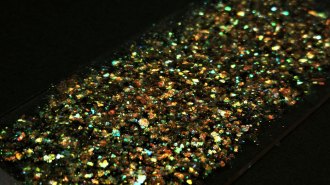 Chemistry
ChemistryThis eco-friendly glitter gets its color from plants, not plastic
Using cellulose extracted from wood pulp, researchers have created a greener alternative to traditional glitter.
-
 Science & Society
Science & SocietyHow missing data makes it harder to measure racial bias in policing
Police officers rarely record nonevents, such as drawing a gun without firing. Failing to account for that missing information can obscure racial bias.
By Sujata Gupta -
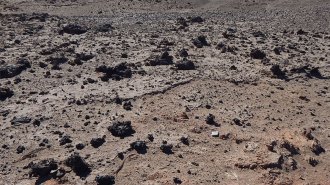 Space
SpaceAn ancient exploding comet may explain why glass litters part of Chile
A 75-kilometer-long corridor of chunks of glass in the Atacama Desert probably formed when a comet exploded 12,000 years ago, a study finds.
By Freda Kreier -
 Physics
PhysicsNew high-speed video reveals the physics of a finger snap
Inspired by the infamous snap of the Avengers rival Thanos, scientists set out to investigate the physics behind finger snapping.
-
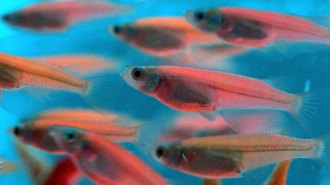 Life
Life‘Life as We Made It’ charts the past and future of genetic tinkering
A new book shatters illusions that human meddling with nature has only just begun.
-
 Astronomy
AstronomyDistant rocky planets may have exotic chemical makeups that don’t resemble Earth’s
Elements sprinkled on white dwarf stars suggest that the mantles of faraway rocky worlds differ greatly from their counterparts in our solar system.
By Ken Croswell -
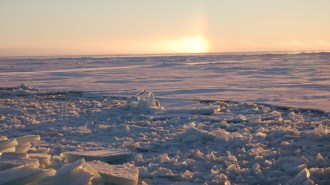 Earth
EarthScientists are racing to save the Last Ice Area, an Arctic Noah’s Ark
The Last Ice Area may be the final refuge for summer sea ice and the creatures that depend on it. Saving it is an ambitious goal with many hurdles.
By Freda Kreier -

How analogies can make complex science clear
Editor in chief Nancy Shute discusses how analogies can help break down complex science concepts, such as a new particle accelerator that will search for rare isotopes.
By Nancy Shute -
 Particle Physics
Particle PhysicsA new particle accelerator aims to unlock secrets of bizarre atomic nuclei
The Facility for Rare Isotope Beams will help scientists unlock the inner workings of atomic nuclei and explore how elements formed in the cosmos.
-

-
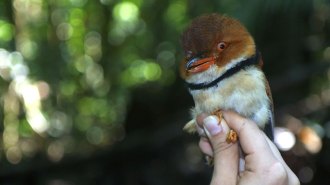 Animals
AnimalsClimate change may be shrinking tropical birds
Scientists had previously found that migratory birds are getting smaller as temperatures rise. Dozens of tropical, nonmigratory species are too.
-
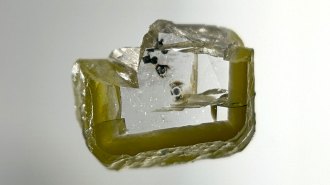 Earth
EarthA mineral found in a diamond’s flaws contains the source of some of Earth’s heat
A mineral theorized to exist in the mantle was found hiding in a diamond. Dubbed davemaoite, it could explain where some of Earth’s heat comes from.